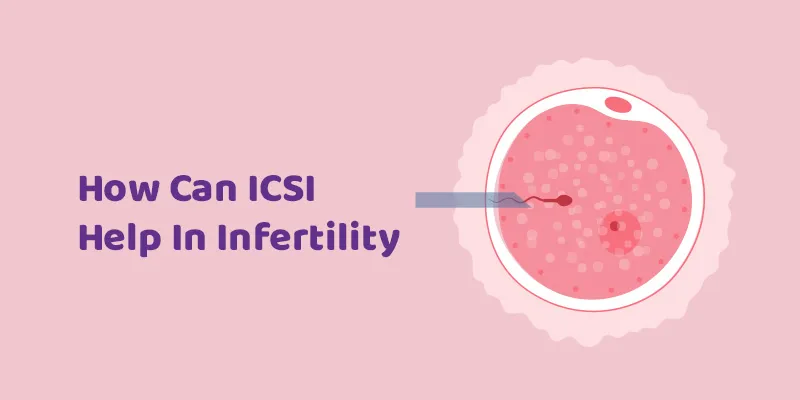How Can ICSI Help in Infertility
March 18, 2024
Female and male infertility is a complex issue that affects many couples on their journey to conceive. It can be overwhelming and emotionally draining, but it is important to remember that you are not alone. There are various fertility treatments available to help individuals and couples overcome infertility and realise their dreams of starting a family. One such treatment is Intracytoplasmic Sperm Injection (ICSI), which has revolutionised the field of assisted reproduction. In this blog, we will explore what ICSI is, how it works, its success rates, and why it may be a suitable option for you.
What is ICSI?
ICSI is an advanced form of in vitro fertilisation (IVF). It involves the direct injection of a single sperm into the cytoplasm of an egg to facilitate fertilisation. This technique is particularly beneficial for couples experiencing male infertility issues such as low sperm count, poor sperm motility or abnormal sperm morphology.
Understanding How ICSI Works
The ICSI procedure begins with the collection of eggs from the female partner through ovarian stimulation. Once the eggs are retrieved, they are carefully examined under a microscope. Subsequently, a highly skilled embryologist selects a healthy-looking sperm and immobilises it using microscopic tools. The selected sperm is then injected directly into the egg using a delicate needle.
After fertilisation occurs, the embryo undergoes development in a controlled laboratory environment before being transferred back into the woman's uterus during her IVF procedure. The success rates of ICSI largely depend on various factors such as the quality of eggs and sperm used, maternal age and the expertise of the fertility clinic.
Success Rates of ICSI
ICSI has been a game-changer for couples struggling with male infertility issues. The success rates of ICSI vary depending on individual circumstances but have shown promising results overall. According to studies, the success rates for ICSI range from 40% to 70% per cycle. These rates may differ depending on factors such as maternal age, underlying infertility causes and the experience of the fertility clinic.
Why Choose ICSI?
ICSI offers hope to couples facing male infertility issues by providing an effective solution. Here are some reasons why you might consider choosing ICSI:
- Male infertility factor: If your partner is diagnosed with male infertility issues such as low sperm count or poor sperm motility, ICSI can help overcome these challenges and increase the chances of successful fertilisation.
- Previous IVF failures: If you have undergone multiple unsuccessful IVF procedures in the past, incorporating ICSI may improve your chances of a successful pregnancy by addressing potential fertilisation issues.
- Fertility preservation: In cases where there is a need for fertility preservation due to medical reasons, such as cancer treatment, ICSI can be utilised to freeze embryos for future use.
- Genetic testing: ICSI can be combined with preimplantation genetic testing (PGT) to screen embryos for certain genetic disorders before transfer, reducing the risk of passing on inherited conditions to your child.
- Unexplained infertility: In cases where the cause of infertility is unknown or unexplained, ICSI can help bypass any unidentified barriers to fertilisation and increase your chances of conceiving.
If you are considering ICSI or have further questions about fertility treatments or options available to you, it is important to consult with a qualified fertility specialist. They will be able to assess your individual situation, provide personalised guidance, and help you make informed decisions regarding your fertility journey.
At Apollo Fertility, our team of expert fertility specialists are here to support and guide you through every step of the way. Schedule a consultation today and take the first step towards achieving your dreams of parenthood.
The actual process of injecting a single sperm into an egg takes only a few minutes. However, the overall treatment duration can vary based on individual circumstances and may require a couple of weeks for ovarian stimulation, egg retrieval and embryo transfer.
Like any medical procedure, ICSI carries some risks, although they are generally minimal. These can include a slightly increased risk of certain genetic conditions and a small chance of damage to the eggs or embryos during the injection process. It is essential to discuss these potential risks with your fertility specialist before proceeding with ICSI.
While there are no guarantees, adopting a healthy lifestyle can positively impact your chances of a successful ICSI cycle. Maintaining a balanced diet, engaging in regular exercise, managing stress levels and avoiding smoking or excessive alcohol consumption can all contribute to optimal reproductive health.